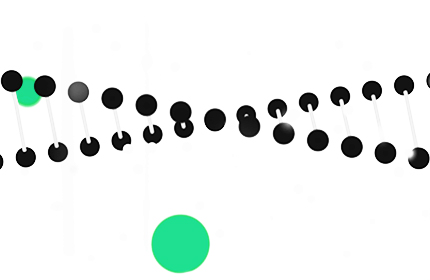Genetic Biocontrol for Invasive Species
-

March 31, 2019
9:00 am - 5:00 pmEl Palau Firal i de Congressos
Tarragona, Spain
Invasive species can pose a threat to the environment, agriculture, or human health. Most governmental approaches to control the spread of invasive species are focused on preventing new introductions. However, efforts to address the control of invasive species once they have become established have met with limited success. Genetic biocontrol of invasive species may offer a new opportunity to go beyond prevention and begin to reduce or eliminate invasive species through genetic strategies. This workshop highlighted different approaches to the control of invasive species that make use of transgenic and nontransgenic organisms designed for introduction into a target population in order to reduce or eliminate it. The presentations given on these various approaches compared them with respect to efficacy, biosafety, practicality, cost, and time frame for implementation.
This workshop was sponsored by the OECD Co-operative Research Programme: Biological Resource Management for Sustainable Agricultural Systems, whose financial support made it possible for some of the invited speakers to participate in the workshop.

Agenda
9:00 am
Introduction
John Teem
Agriculture & Food Systems Institute, USA
9:05 am
The OECD Co-operative Research Programme: Biological Resource Management for Sustainable Agricultural Systems (CRP)
Primal Silva
Canadian Food Inspection Agency, Canada
Session 1: Genetic Biocontrol Approaches
9:15 am
Sterile-Release: Can the Principals of Sterile Insect Technique for Eradication of Agricultural Pests be More Broadly Applied to Invasive Species?
The historical practice of making insects sterile using radiation, new approaches to sterility through genetics
John Teem
Agriculture & Food Systems Institute, USA
Sarah Descamps
Universiteit Hasselt, Belgium
9:45 am
Trojan Y Chromosome Eradication of Invasive Fish
This eradication method to shift the sex ratio of a population involves no transgenes and is currently being actively employed in the wild
Dan Schill
Idaho Department of Fish and Game, USA
10:15 am
Trojan Female Technique
Introduction of a male-harming mitochondrial haplotype via ‘Trojan Females’ achieves population suppression in fruit flies
Neil Gemmell
University of Otago, New Zealand
10:45 am
Coffee Break
11:15 am
Trialling Gene Drives Against Invasive Species: Why Islands?
Are there biosafety containment measures that would allow field testing of a gene drive in the environment?
Tim Harvey-Samuel
Pirbright Institute, UK
11:45 am
In silico Modelling and Laboratory Development of Murine CRISPR-Cas9 Gene Drives
Gene drive as a tool to eradicate invasive species – GBIRD eradication of invasive mice on islands
Paul Thomas
University of Adelaide, Australia
12:15 pm
Containment Strategies for Gene Drives
Private alleles as a means of containing the spread of gene drive mice to nontarget populations– a GBIRD genetic approach to containment
Owain Edwards
CSIRO, Australia
Toni Piaggio
USDA APHIS, USA
Karl Campbell
Island Conservation, Ecuador
12:45 pm
Lunch Break
Session 2: Regulatory Considerations for Genetic Biocontrol
2:00 pm
Risk Assessment for Classical Biocontrol
Existing regulatory frameworks for classical biocontrol as a template for considering the release of a genetically modified invasive species into the environment
Trevor Smith
Florida Department of Agriculture and Consumer Services, USA
2:30 pm
Regulation of Gene Drive Organisms to Control Invasive Species
Regulatory considerations for environmental risk assessment of gene drives for genetic biocontrol of invasive species
Detlef Bartsch
Federal Office of Consumer Protection and Food Safety (BVL), Germany
3:00 pm
Coffee Break
3:30 pm
Regulation of Genetically Modified Organisms for Invasive Species Control
Consideration of environmental risk assessment for GE animals employed for genetic biocontrol in view of the historical experience with GE plants
Heidi Mitchell
Office of the Gene Technology Regulator, Australia
4:00 pm
Panel Discussion
The different genetic control approaches presented will be compared and important points relating to regulation will be summarized
John Teem
Agriculture & Food Systems Institute, USA
4:45 pm
Summary
John Teem
Agriculture & Food Systems Institute, USA
5:00 pm
Adjourn
*There will be a five minute period included at the end of each 30 minute presentation that will be used for questions and answers.
